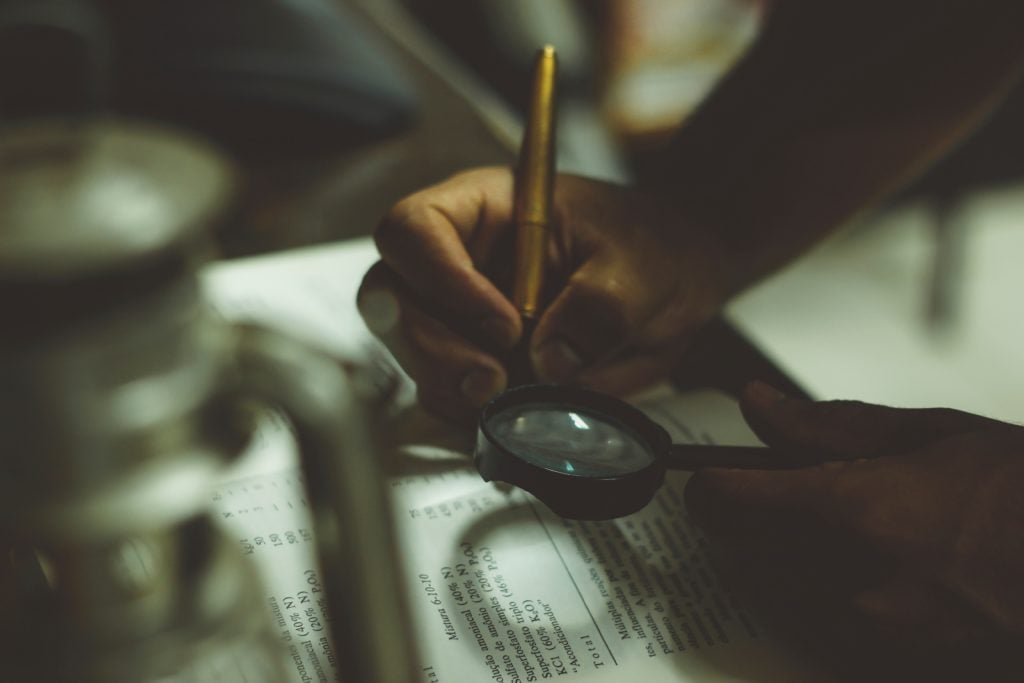
If you're asking how to improve your life, that probably means your life could use some improvement.
I get it. We get busy. We get tired. Our routine gets monotonous. We get stressed or we start worrying about the future.
Life happens to the best of us.
I have a budding threenager, so not every day is a magical unicorn picnic for me either.
My background is in education and as an improvisation researcher. I improvised and studied improvisation and its effects on the brain for years, and here's what I learned:
When trained improvisers are doing their thing, they become more creative and less inhibited. This change shows up in brain scans of improvisers. The part of their brain that nags at them and frets takes a smoke break, while the parts that see patterns and get creative and have fun are just flowing and creating and swirling with activity.
This improv brain feeling is fantastic. No worries or anxiety. Nothing but playful creativity.
But no matter how much I studied and researched improv thinking, my everyday brain didn't get any less anxious, worried, or distracted.
So, I designed 12 lessons from improv that would help transfer this improv thinking to my daily life. And I came up with what I call everyday games that help me practice these 12 lessons throughout my day.
I call the whole thing Play your Way Sane because that's what I'm trying to do with the lessons and games. I'm trying to play my everyday games, just like I played improv games, so that I can be as mindful, joyous, and connected in my real life as I was when I improvised.
I want to give you a sneak peek at 12 games, one from each lesson. You can play these games as you go about your day. I hope they will show you how to improve your life by showing you how to be more mindful, present, and connected.
1. Set the Stage
The first game comes from the first lesson: Setting the Stage. In order to start figuring out how to improve your life, it's important to start becoming more mindful of the current state of your life. It's important to start at the beginning, look around, smell the roses, take stock, and set the stage for yourself.
Call It Like You Sees It
A lot of acting classes start with everyone just roaming around and "checking out the space." People walk around making eye contact and looking up and down at all the things in the rehearsal studio.
My favorite version of this exercise is an improv favorite. Improvisers point to things in the room and say the name of that object out loud. Then another and another object. "Book, chair, floor, window."
The whole point of this kind of exercise is for people to stop thinking about the traffic, their taxes, and the fight they just had, so they can start becoming more mindful and aware of what's actually going on in the room.
I love this exercise in real life, too. One tip for how to improve your life is to Call it like you Sees It. Whether you're walking to work or out to pick up lunch. Traipsing through the grocery store or the parking lot of your favorite big-box retailer. Point to whatever catches your eye and just say its name. "Car, pasta, tree, store, sidewalk, bird."
This will help you become more mindful and present. Your brain only has so much space for conscious thoughts, so stop thinking about those taxes and start getting aware of the world all around you.
2. Calm Down
The next tip for how to improve your life is to calm the hell down. Besides becoming more mindful of the world around us, we also need to learn how to relax, slow our breathing, and calm our bodies and minds.
You on a Beach
This next everyday game is like a walking meditation. Slow your pace and your breathing as you're walking wherever it is you're going.
Then try to visualize a beautiful beach with all five of your senses. Some people are better at visualizing with their sight and some with sound or taste or smell or touch. So, try to experiment with all five as you try to visualize your relaxing beach.
Instead of leafless trees or crowded city streets, visualize a pristine sandy beach and rolling waves with some seagulls soaring by.
Try to hear the soothing sound of the waves, taste the salty mist in the air, feel the sand on your feet, and smell the fresh sea air.
If you make this walking meditation a habit, I think you'll find that you'll be more relaxed and centered, which will help you be less reactive and stressed and better able to handle whatever life throws at you.
3. Find the Game

If we're serious about improving our lives, it's also crucial that we start finding joy in the mundanity of day to day life.
In improv, there's a concept called "Finding the Game." This can mean finding fun patterns you want to expand or just gamifying, which means turning an everyday task into a game.
The point really is to add some playfulness and joy to your everyday experience. One example is to add dance breaks to your daily routine. Been working for an hour? Pause. Stand up. Stretch out. Turn on some tunes. And just dance.
Suddenly, you have something to look forward to, something to put a smile on your face, if even just once an hour.
Alien Game
My favorite everyday game for bringing some joy into your daily routine is called Alien Game. It's great if you struggle to go with the flow, especially if you struggle with crowds.
To play you just have to pretend you're an alien. You don't know much about earthlings, and you don't want to blow your cover, so you need to really pay attention to what the earthlings are doing and really try to blend.
If people are walking slowly, you better do the same. If people have their heads down, do the same. You get the picture.
The Alien Game turns a stressful commute or unpleasant crowd into a game. And anything that brings joy to your life will certainly help put a smile on your face and improve your life.
4. Get and Stay Positive
The next hot tip for how to improve your life is to practice positivity. Now, I'm not saying that just thinking positively will make everything in your life start going perfectly. Unfortunately, it doesn't quite work that way.
What I am saying is that perspective matters. If we practice seeing the bright side of things, we start reforming our brains to be more positive. And a more positive brain is a happier one.
The Yay Game
This is one of my all-time favorite improv games. I call it the Yay Game. Here's how it goes in an improv rehearsal:
Everyone stands in a circle. Then, one person volunteers a first-line for an adventure. Maybe, "We're going to the moon." Or "We are on a pirate ship."
Then, everyone throws their hands in the air and yells, "Yay!!!!!"
Then, someone else contributes a second line for the adventure and people say "Yay" again. And so on.
The whole point of the Yay Game is to practice accepting and celebrating people's ideas instead of critiquing or evaluating them. Basically, it's a good way to practice being more positive.
To play this in your everyday life, I don't expect you to gather 16 of your friends and stand in a circle. Just say "Yay" after the various ins and outs of your day.
Husband asks you to take out the garbage? Yay! A clean house.
Boss wants you to stay late? Yay! She trusts you.
You didn't get that job offer? Yay! The universe is freeing you up for something better later.
Yay forces you to try to see the silver lining. And the silver lining is one great way to improve your everyday experience.
5. Don't Be Judgmental
It's also important to stop being so judgmental. If you want to improve your life, you may need to cool it with your judginess. You ain't Judge Judy.
The tip here for how to improve your life is to approach everyone with an open mind. Don't make assumptions about others. What's that old saying? A stranger is just a friend you haven't met yet? Yeah. More of that.
Curious Detective

The everyday game for practicing your newfound open-mindedness is called Curious Detective.. Just pretend you're a detective. You want to get to the bottom of what makes people tick. Who are they? What do they care about?
You'll need to ask lots of questions and not jump to conclusions as you sleuth your way through each social interaction. This keeps your mind open and your judgment at bay.
And that's yet another way we can improve our life. We're social beings, so strong, open social ties are crucial to a happy life.
6. Find Greatness in Others
In addition to tamping down our judgment, we also need to start seeing the greatness in others if we're going to improve our lives.
When we see the good in others, we actually make our own lives less stressful and more positive. In improv, the better your teammates look, the better you look. It's a team effort, totally collaborative.
And I think it works the same in real life. My life doesn't get any better when I belittle and see the worst in others. It does get better when I support and see the best in them.
On the simplest level, seeing the best in others puts more people in my corner. It strengthens my support system, which helps my mental health and sense of connection with others.
You are a Unicorn Sliding Down a Rainbow

To start practicing seeing the best in others, you can try the game I like to call You are a Unicorn Sliding Down a Rainbow. It's a silly name, sure. But I hope it helps you start seeing people's potential.
Just look closely at people to see what makes them special. What makes them a unicorn?
Are they generous? Polite? Funny? Composed? Theatrical? Sincere?
What's their magical unicorn power?
By getting in the habit of searching for the greatness in others, we put ourselves in a more positive frame of mind and start interactions on the right foot. We become more open and inviting to others, which sets us up to collaborate and create with all sorts of people.
7. You aren't Special
I know your parents may have told you were special, but think about this: if everyone is special...then no one is actually special, right?
When we think of ourselves as the star of the film of our lives and think of ourselves as more important or special than everyone else, we are setting ourselves up to be disappointed. We're setting ourselves up for conflict.
On the other hand, if you practice thinking of yourself as no more or less important than any other human, you're setting yourself up for collaboration. It's the kind of humble pie that will help you become part of the team instead of the diva that no one wants to hire.
Cog in the Machine
A classic acting exercise that gets to the heart of this "you're not special' idea is called Machine. Actors take turns going into the center of the space and doing repetitive, machine-like sounds and movements.
Then, other actors join in, creating a machine made up of individual human machine parts. Everyone is supposed to move in unison. No one is more or less vital. Every part of the machine is necessary to keep it functioning.
I've adapted this Machine game for everyday life and call it Cog in the Machine. It's a lot more subtle than the acting game.
Let's say you're in your cubicle at work. Listen and watch what's going on around you. Hear a pencil tapping? AC humming? See people walking past you at a steady pace? Debbie in accounting twirling her hair?
Then, close your eyes and figure out how you could become a cog in this machine. You could rub your hand back and forth on your desk to the rhythm of the room or nod your head up and down in time with what you see and hear around you.
The idea is to become just another part of the natural rhythms and movements going on all around you instead of getting stuck in your head about how important you are or how your deadline is the most critical thing.
Cog in the Machine helps you take a break from thinking you're special and gives you insight into how you can fit into the flow of all the equally important machine parts all around you.
8. Listen
The next tip for how to improve your life is to start thinking about yourself less and listening to other people more.
Listening is becoming a lost art. We're so busy rushing here and hurrying there and so consumed with our own lives that we often forget to stop and truly listen to others. Listening is the backbone of relationships and community.
Especially in divisive times like right...now. Turn on most news shows and you'll see a whole bunch of stories about disconnection and very few stories about people really listening to each other.
Hard-Hitting Questions
The game I like to play to beef up your listening is called Hard-Hitting Questions. You've probably noticed by now that I like to pretend to be people I'm not. No doubt because of my history as an actor. This game is no exception.
For this game, you're going to pretend you're a hard-hitting reporter.
Some of my favorites are Diane Sawyer, Oprah, or Barbara Walters. These reporters wouldn't just nod their heads and say "uh huh." No way.
When they interview people, they ask great questions that start to unlock the interviewee's personality and values.
Figure out what makes people tick.
Ask poignant questions and then really listen to the answer. Then ask more questions based on that answer.
Most people love talking about themselves. And when they do, they often feel more connected to whomever it is they're talking. That's what this game is all about: Connection through an authentic and deep kind of listening.
9. Say Yes

Now we're finally getting to the meat and potatoes of improvisation: the Yes And principle. Improv scenes work because improvisers say yes to each other's ideas.
If one improviser says, "Welcome home, Becky," and the other improviser responds, "Who's Becky?" the scene becomes all about figuring out who Becky is and what the hell is going on in this strange situation. This does not make for a good improvised scene.
If instead, the second improviser responds, "Thanks, Carl," the scene can get going with more and more details. We can begin to see who these people are and what makes them tick. That makes for a much better scene.
Saying yes can help us improve our lives, too. "No" may keep us safe, but it also keep us stagnate.
Yes
The everyday game that will help you start saying yes to life is simply called "Yes." It's a little clunky, but it will help you listen to others and go along with their reality.
Now, I'm not advocating that you say yes to literally everything. That would be catastrophic. And it would certainly make it difficult for you to stand up for what you believe in and stay safe and create healthy boundaries.
What I am advocating is that you try to say yes more often. And do some introspection about why you say no. I tried the Say Yes Challenge with my toddler daughter for an entire week and discovered that I usually say no to her to avoid messes and struggles. However, me saying no often just turned into a power struggle.
So, to play Yes, simply paraphrase what someone says to you. Then, literally say yes to them.
Let's have an example:
If someone asks you to pick up their dry cleaning, you just say, "You want me to pick up your dry cleaning. Yes, I will obviously do that for you."
Or maybe someone asks you if you like Kim Kardashian. Depending on your true feelings this could get tricky. But the Yes game is going to force you to see the good in the Kardashian/Jenner clan.
You might say, "Do I like Kim? Yes, in a way..." and then go from there.
"Yes" can be scary. It can lead you to the unknown. But the unknown is where all the risk and adventure is. And risk and adventure are where all the change is. And change is where all the growth is.
So try to say yes more often and see what happens.
10. Say And
The second part of the Yes And principle is "And." Obviously.
Improvisers can't stop at saying yes to each other's ideas. They also have to add new details to the scene to keep it going. These are called gifts.
Maybe one person says, "I love the new office." The next person could add a new detail with, "These floor to ceiling windows are spectacular."
That's a gift! Those windows could make the first person say, "Wait, look at that helicopter over there." And on and on. By adding new details, we start to discover all sorts of things about the location and characters in the scene.
And
To play And in your everyday life, you start the same way as the Yes game. You go along with someone's ideas. Then, the And part comes in when you literally say And. Then, you add a new detail that's not about you.
It's crucial that you try not to make the conversation about you.
If you're talking to the neighbor and they say, "It's been such a long winter," you could say, "Yeah, it has been such a long winter, AND I noticed you bought a new snowblower."
Nice work! You added a new detail that is completely related to what your neighbor was talking about. You agreed with their reality and added a new related detail to the conversation.
Life is all about relationships, so contributing more during conversations will help improve your life by strengthening said relationships.
11. Embrace Mistakes
The next tip for how to improve your life has to do with the shame we feel when we make mistakes. This shame completely holds us back. It can cause something called creative mortification, which is really just a fancy way of saying it can make us give up on ourselves and on our dreams.
So, coming to terms with our past, present, and future mistakes (because we all 100% make them) will help us get out into the world and pursue our personal and professional goals.
Special Announcement
To practice coming to terms with our mistakes, I want you to play Special Announcement. This could be a fun game to play with friends. Or if you're feeling especially brave, you could play this with acquaintances.
The whole idea is to put yourself on the spot. Before you know what you're going to say, you have to announce, "I have a special announcement!"
Then, when everyone looks your way, you have to just make it work. Challenge yourself to not know what your special announcement will be before you say you have a special announcement. This will force you to make it up on the spot.
Many times, your announcement won't be that great. And life will go on! I think you'll see, especially if you play this with friends, that it's fun to not be perfect. It's okay to put yourself out there. It's okay to make mistakes.
Now, I'm definitely not saying you should go around trying to make mistakes all the time. That's not what improvisers do, and it's not what you should do.
But when improvisers do make mistakes, they integrate them into the scene. They keep it moving without getting bogged down in shame and embarrassment. And that's what I want you to practice doing in your everyday life.
12. Make Big Choices
The final tip for how to improve your life is to just make big choices. As Nike would say, Just do it.
Obviously, putting yourself out there and braving the world can help you improve your life. You have to put yourself out there to make connections, build relationships, and find opportunities.
Do the Damn Thing
The game Do the Damn Thing will help you take stock of those big choices you're not taking and then just start doing the damn things.
I want you to make a list of all the things you want to achieve. Maybe you want to write that book, ask that guy out, volunteer at that shelter, or go to that place.
Try to include everything that you truly want to achieve.
Then, you need to do the damn thing. Start by choosing one and then just doing it.
It sounds easy, but when we write down all the big choices we want to make in life, we have to confront them. And when we treat that list like a to-do list and not a pipe dream list, we're much more likely to get bold and finally start making some big moves in our lives.
Final thoughts on how to improve your life by playing games
Improving your life doesn't have to be drudgery. If you approach it with a sense of playfulness and adventure, I hope you will be more inclined to wake up every morning with the intention of becoming more mindful, joyous, and connected.
There's no magic pill.
But these games can help you slow down and become more present and mindful. They'll help you be more positive and less judgmental. Kinder and bolder.
And those are all the ingredients for a bigger, bolder, braver life. Those are all the ingredients for improving your life through play. Little by little every single day.
For more games to help you reach your goals this year, check out my new book Play Your Way Sane: 120 Improv-Inspired Exercises to Help You Calm Down, Stop Spiraling, and Embrace Uncertainty (Simon & Schuster).
